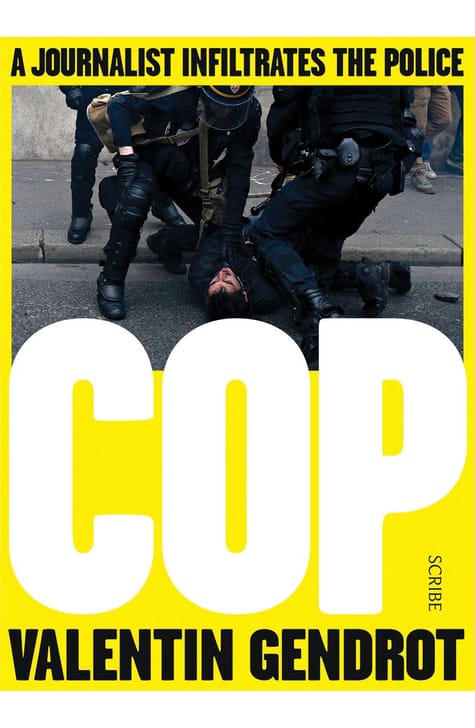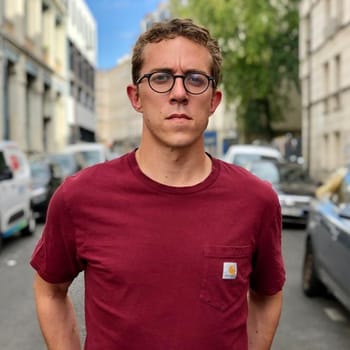Cop:
a journalist infiltrates the police
Translated by Frank Wynne
Overview
Police officers are obliged to give an account of every incident they are involved in. But what happened today will never be logged. Because that’s what police solidarity means: what happens in the van stays in the van.
Well, not always. Not this time.
What really happens behind the walls of a police station? To answer this question, investigative journalist Valentin Gendrot put his life on hold for two years and became the first journalist in history to infiltrate the police undetected.
Within three months of training to become an officer, he was given a permit to carry a weapon in public. And although he lived in daily fear of being discovered, in his book Gendrot hides nothing.
Assigned to work in a tough area of Paris where tensions between the law and locals ran high, Gendrot witnessed police brutality, racism, blunders, and cover-ups. But he also saw the oppressive working conditions that officers endured, and mourned the tragic suicide of a colleague.
Asking important questions about who holds institutional power and how we can hold them to account, Cop is a gripping exposé of a world never before seen by outsiders.
Details
- Format
- Size
- Extent
- ISBN
- RRP
- Pub date
- Rights held
- Other rights
- Paperback
- 198mm x 129mm
- 240 pages
- 9781913348885
- GBP£9.99
- 2 December 2021
- World English
- Books and More (BAM) Agency
Praise
‘Vivid and engrossing.’
‘An explosive new book by an investigative journalist has drawn fresh attention to police brutality and racism in France … chronicles the author’s training and the six months he spent as a police officer in one of Paris’ poorest districts … its vivid portrayal underlines how France’s history of racism and present-day police tactics have remained relatively unexamined.’
About the Author
Born in 1988, Valentin Gendrot worked on local newspapers and radio after graduating from journalism college, and carried out several undercover investigations — including working on a Toyota production line and in a Lidl supermarket — before joining the Paris police force.
Translator
Frank Wynne is an Irish literary translator, writer, and editor. He has translated numerous French and Hispanic authors including Michel Houellebecq, Patrick Modiano, Javier Cercas, and Virginie Despentes. Over a career spanning more than twenty years, his work has earned him the IMPAC Dublin Literary Award, and the Independent Foreign Fiction Prize, and he was twice awarded both the Scott Moncrieff Prize and the Premio Valle Inclán. Most recently, his translation of Animalia by Jean-Baptiste del Amo won the 2020 Republic of Consciousness Prize. He has edited two major anthologies, Found in Translation: 100 of the finest short stories ever translated (2018) and QUEER: LGBT writing from ancient times to yesterday (2021).


